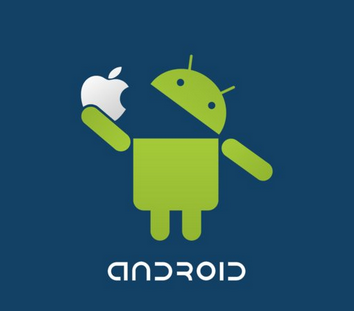 NEWS
NEWS
 NEWS
NEWS
 NEWS
NEWS
![]() The Android operating system might only be five and a half years old, but you would never of guessed that by its overwhelming dominance of the world’s mobile landscape. And according to at least one research firm, its grip on mobile is getting even stronger, as it now runs on a staggering 59.5% of all ‘smart’ mobile devices in the world today.
The Android operating system might only be five and a half years old, but you would never of guessed that by its overwhelming dominance of the world’s mobile landscape. And according to at least one research firm, its grip on mobile is getting even stronger, as it now runs on a staggering 59.5% of all ‘smart’ mobile devices in the world today.
A new report from Canalys shows that the global mobile device market, which includes not just smartphones but also tablets and notebooks, grew by more than 37.4% over the last quarter with a total of 308.7 million such devices shipped. That statistic probably won’t surprise anyone who’s been following the mobile revolution over the last couple of years, but given that it also includes shipments of all Windows-powered notebooks, Android’s individual performance is seriously impressive.
Android is now close to running two-thirds of all new devices sold in the world, while in comparison, Apple’s iOS powers only 19.3% of tablets, smartphones and computers. Meanwhile, Microsoft’s Windows operating systems (inc. Windows Phone and Windows 8 on notebooks) run on just 18.% of devices sold in the first quarter of 2013.
Canalys’ data reinforces what we saw last month, when industry analysts revealed that PC shipments had fallen by a record-breaking 13.9% since the start of the year. The blame for the notebook’s swift decline can be laid squarely at the feet of tablets, which saw shipments rise by a staggering 106.1% year-on-year to account for 41.9 million in total. More tellingly is that Android continues to be a very important player in the tablet space, accounting for 46.4% of all devices shipped, proving that even the iPad has something to worry about as the number of solid-yet-affordable devices continues to rise.
Quite simply, Android is steamrollering iOS and Windows right now, and these latest figures will put renewed pressure on Microsoft and Apple to innovate their way out of trouble. Even more worrying for them is that Android’s potential for further growth seems to be almost unlimited – there are even rumors that the OS will be loaded onto low-cost laptops later this year, something that would likely squeeze its rivals even more. As far as weaknesses go, the only real problem for Google is its over-reliance on Samsung, whose devices account for the vast majority of Android-powered gizmos. Not that Samsung is likely to have problems shifting devices anytime soon, though there is the concern that it might one day decide to dump Android if its Tizen operating system takes off.
That won’t happen for a long time yet though, and in the meantime Microsoft and Apple will continue to look for ways to come back. While Apple is apparently considering rolling out a line of lower-cost devices to appeal to less well-off consumers, Microsoft has been steadily building its eco-system of apps. This morning, it finally announced it had broken the 145,000 apps barrier, with recent additions including big names like YouTube, Foursquare and Hulu. Nevertheless, it still has some way to go to catch up with its rivals – iOS for example, has something like 800,000 apps available to download on the iTune store.
Support our mission to keep content open and free by engaging with theCUBE community. Join theCUBE’s Alumni Trust Network, where technology leaders connect, share intelligence and create opportunities.
Founded by tech visionaries John Furrier and Dave Vellante, SiliconANGLE Media has built a dynamic ecosystem of industry-leading digital media brands that reach 15+ million elite tech professionals. Our new proprietary theCUBE AI Video Cloud is breaking ground in audience interaction, leveraging theCUBEai.com neural network to help technology companies make data-driven decisions and stay at the forefront of industry conversations.